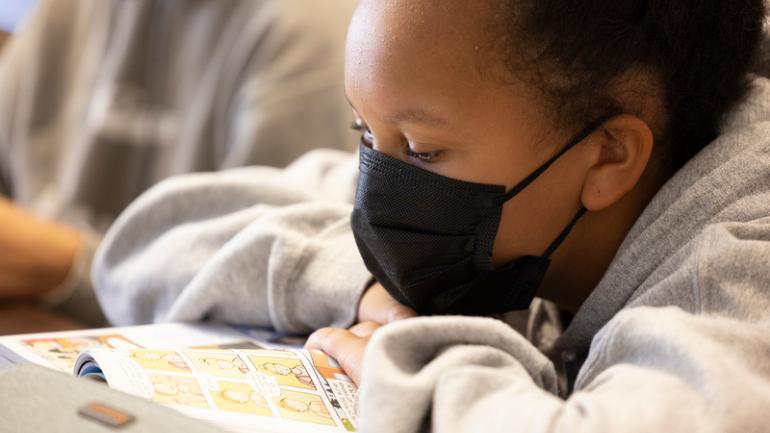
We tend to think of the word “genius” as a rare title for an elite few: you can be one of the handful of luminaries a year who win a “Genius Grant”, or perhaps be declared a genius posthumously for some once-in-a-generation invention or contribution. But what if genius is a quality that can be cultivated in all of us given the right environment and support – even among middle schoolers? Gateway Middle School faculty are tackling exactly that challenge with an extensive professional development program based around the book Cultivating Genius: An Equity Framework for Culturally and Historically Responsive Literacy by professor and teacher trainer Gholdy Muhammad.
Each summer, GMS teachers typically commit to reading one of several books about equity in the classroom, and then sharing their reflections with colleagues when they return in the fall. This year, however, faculty agreed to all read Cultivating Genius in an effort to have deeper, more meaningful conversations and more common ground for collaboration. Working with partner organization Facing History and Ourselves, experts in training educators around issues of equity and social justice, GMS leaders have planned a long term professional development pathway focusing on the tenets of Muhammad’s “Historically Responsive Literacy Framework”: identity, skills, intellectualism, criticality and joy.
“Cultivating Genius is really about putting theory and neuroscience into practice in schools, and it’s really well-aligned with our previous work with Facing History and becoming a pro-Black, anti-racist community,” said GMS Principal Jai David. “No one book is going to be a silver bullet, but this is a really great place to start.”
Muhammed’s literacy framework is based upon her research into Black literary societies of the 19th century in states that had abolished slavery but effectively locked Black people out of all public institutions and educational opportunities. These close-knit intellectual communities by and for people of color were explicitly designed to push back against white supremacist narratives and arm members with the skills and mindsets necessary to thrive, a mission as resonant and urgent today as it was in the 1830s.
“What has resonated with me is this rare perspective about Black and Brown scholars who would come together to share ideas through literature and be able to accomplish learning alongside each other, building their identity and confidence in the world in a time where that was a real risk,” said Jai. “And that they were taking that risk because they believed in the value of themselves and each other, and how much that changes things for the better. That's what I want to see in our community, too.”
So far this year GMS teachers have focused on the tenets of Identity – building lessons and classroom cultures that encourage students to have pride in themselves and ground them in self-worth – and Criticality: the ability to question the status quo and identify opportunities for change. As the year progresses, Skills, Intellectualism and Joy will be areas of additional focus.
“A culture shift like this takes a long time,” said Jai. “But I’ve seen it happen. And once it starts, it becomes contagious.”
Want to learn more about Cultivating Genius? Check out this interview with Dr. Muhammed on KQED.